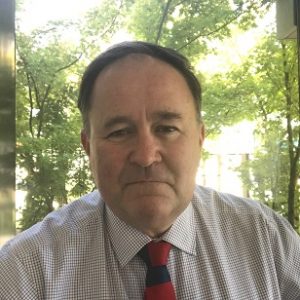“There Must be Somethin' else -- Some'ow”: Veterans Spirituality
Murray Davies

We’re sittin’ talkin’ by the fence,
The sun’s jist going’ down,
Paintin’ the sky all gold an’ pink.
Said ‘e, “When it’s like that, I think –”
An’ then ‘e stops to frown.
Said ‘e, “I think, when it’s jist so,
Uv … God or somethin’: I dunno.
“I ain’t seen much uv God,” said ‘e;
“Not here nor Over There;
But, partly wot I’ve seen an’ read,
An’ partly wot the padre said,
It gits me when I stare
Out West when it’s like that is now.
There must be somethin’ else — some’ow.
Digger Smith: v. West, C.J. Dennis 1918
It seems very unlikely that the larrikin Australian soldier, Digger Smith, from C.J. Dennis’ poem West would have thought of himself as a practical theologian. This short excerpt paints the picture of a man reflecting on his context of “God or somethin…over there” (Western Front) based on “partly wot I’ve seen an’ read, an’ partly wot the padre said” is a very good example of the issue, veterans’ spirituality.
The Department of Veterans Affairs (DVA) cites that the total of Australian veterans from all wars is approximately 301,200. It has been estimated that somewhere between 8-13% will suffer from some form of service related mental illness. The causes and symptoms of service related mental illness are complex, but experience from the United States indicates that there is a spiritual dimension to a soldier’s wounds which they continue to suffer after they are discharged.
Serving Defence personnels’ spiritual needs are well supported by a large and highly developed network of military chaplains and spiritual advisors. But what happens to Digger Smith when they leave the ADF and enter the ever-growing community of Defence veterans? Agencies such as DVA and the broader community are starting to look more deeply at psychological and cultural aspects of veterans’ mental health, but what happens to their spiritual care and healing? The short answer is that in many cases they will effectively enter a spiritual grey zone. To date, church based spiritual care of veterans has been largely ceremonial and relegated to commemorative events such as Anzac Day. The creation of ANZAC Day as a day of remembrance was the idea of two Anglican Padres. Government and community organisations are silent on this issue and there seems to be a general lack of understanding of the nature of and approaches to healing the spiritual wounds carried by ADF veterans.
Does the church have a scriptural basis that supports and facilitates a role in this spiritual grey zone? The Bible does not appear initially to be supportive of those with a mental illness. It could be argued that the people demonstrating ‘demonic possession’ in passages such as Luke 4:33-36, Matthew 17:18 and Acts 16:16-18 were suffering from some form of mental illness. Proverbs 17:22 is more positive, “A cheerful heart is good medicine, but a crushed spirit dries up the bones” and Jeremiah 33.6, “Nevertheless, I will bring health and healing to it; I will heal my people and will let them enjoy abundant peace and security.” There is also Proverbs 18:14, “The spirit of a man will sustain his infirmity; but a wounded spirit who can bear?”
It appears that whilst there is a need and a scriptural foundation for care of veteran’s spiritual wounds, there is no significant supporting activity occurring within the broader Australian community. There is clearly a role for churches and religious organisations in the area. Just as properly trained and accredited medical and psychological practitioners are required to deliver such treatment in their space, so too will there be a requirement for the involvement of properly trained and accredited spiritual/faith practitioners. Such practitioners typically exist within a church environment.
Ultimately agencies such as DVA are responsible for all aspects of veterans’ care, although as a Government organisation they are not organised or provisioned for such spiritual activities. In many respects, this is a multi-faith challenge for churches and spiritual organisations that is not limited to a single doctrine. Individual parish or area initiatives are relevant and welcome, although major faith groups need to develop policies towards veterans’ spiritual health care in much the same way that they have developed policies on issues such as poverty or refugees. While individual faith group approaches will be relevant and welcome, they too will need to be executed within a strong multi-faith environment and coordinated with secular policy from DVA and broader medical/psychological treatments.
Bibliography
Gladwin M., Captains of the Soul, (Newport: Big Sky Publishing, 2013).
Kopacz, M.S. and Connery A.L., “The Veteran Spiritual Struggle”, in Spirituality in Clinical Practice, 2 1 (2015): 61-67.
Osinga F, Science, Strategy and War The Strategic Theory of John Boyd, (New York: Routledge, 2006).
Thompson, J., Pattison, S. & Thompson, R. “Ways and Means : A Variety of PTR Approaches and Models”, in SCM Study Guide to Theological Reflection (London: SCM Press, 2008).6.
MEAO Census Study Summary Report, CVMH 2012, accessed 25 October 2015, http://www.defence.gov.au/health/home/docs/meaocensusstudyreportvoli.pdf
This article is also published in the Nov 2017 edition of Crossfire magazine. To gain a copy of the full magazine please digitally access it here or contact the MCF Office to request physical copies.
 others in the ADF and the wider Christian community. Please consider how you can support us through prayer, finances and getting involved in the MCF community.
others in the ADF and the wider Christian community. Please consider how you can support us through prayer, finances and getting involved in the MCF community.